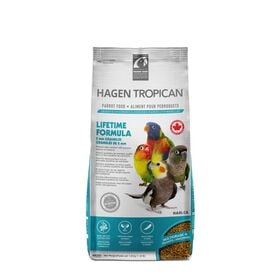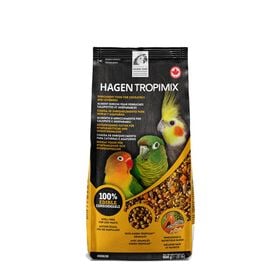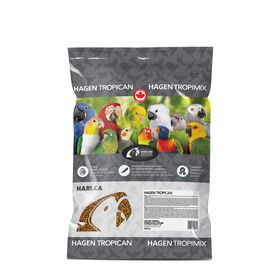It is possible to detect certain diseases early if you know your bird very well, as you will rapidly be able to detect any changes in his behavior: Does he look less lively than usual? Less vocal? Less active? Observing your bird adequatly will give you a good idea of his general health state.
First, we strongly suggest a regular monitoring of your pet’s weight. Slight fluctuations can be normal, but they could also be an indication of a health concern, especially if your bird starts to lose weight. Since numerous parrot companions are challenged with obesity, any weight gain should be closely monitored and may require a diet or lifestyle revision (housing, exercise or enrichment).
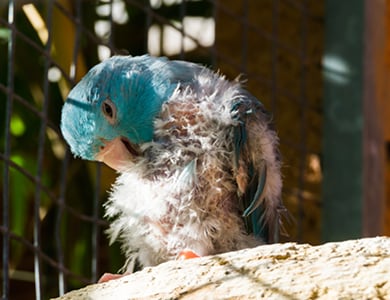
However, because birds are prey animals, they will try to hide when they are sick as long as possible because a sick bird becomes an easy prey for a predator. Which means that a bird showing signs of illness no longer has energy to hide it and its condition is always more advanced than it lets us believe. Often, they can continue to eat normally, even when they are sick. Here are some symptoms observable in a sick bird which justify an immediate trip to your avian veterinarian:
- Feather bristling
- General state of the feathers: decrease in tint and shine, emergence of stress bars, pigmentation change (indicator of nutritional deficiencies)
- Chronic molting
- Abnormal droppings (color, smell, texture)
- Droppings stuck to the cloaca
- Beating tail (indicator of respiratory problem)
- Pupils that does not dilate when exposed to light
- Watery eyes
- Half-closed eyes
- Nasal secretions
- Nasal obstruction
- Difficulty breathing (fast, with open beak or noises)
- Abnormal beak (excrescence, friability, alignment)
- Vomiting (regurgitations during courtship are normal for a lot of species)
- Weight loss
- Atrophy of pectoral muscles
- Apparent wishbone
- Abnormal posture (coordination, balance, agility, motricity, weakness)
- Avoiding the use of one leg
- Remaining at the back of the cage
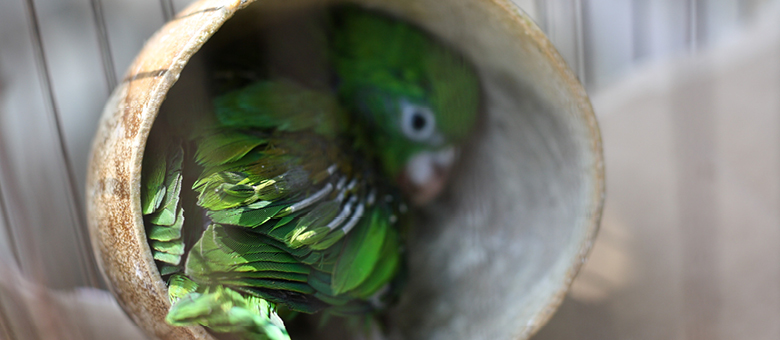
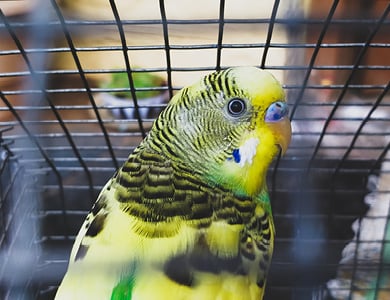
The vet will perform a thorough examination by using precise diagnostic protocols (X-rays, hematology, biochemistry, parasitology, etc.) which will help determine the state of the bird’s health. In order to be fully prepared in case of an emergency, you should equip yourself with an avian emergency guide, a first aid kit from your pet retailer and have on hand the number of the nearest avian veterinarian.
This link gives you access to a health guide with some basic recommendations to help you become the best bird owner: http://hari.ca/wp-content/uploads/2017/09/Generic-Bird-Profile-July-en-LR.pdf
Marilyne Savard
Avian biologist


